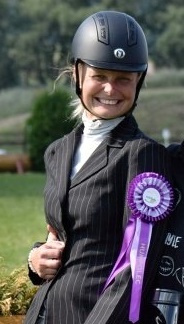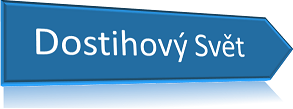Vendula Jirčáková: Everyone wants to win the Velka Pardubicka, and so do I

Vendula Jirčáková is the trainer of Dulcar de Sivola, the biggest outsider in the field for the 132nd running of the Velka Pardubicka. In this interview with Jana Šejnohová, which first appeared on this website on October 7th, Vendula Jirčáková answers questions about her career in equestrian sport, and how she sees Czech horse racing in these difficult times
Her world is linked with horses of various kinds: racehorses, showjumpers, western horses and horses for equestrian sport. Vendula Jirčáková, a fearless lady rider, and from this year also the official trainer of the DiJana Dobšice stable, for which, together with her friend, jumps rider Josef Borč, she trains six horses including Dulcar de Sivola, which is a runner in this year’s Velka Pardubicka.
You’ve tried your hand in just about all of the equestrian disciplines that exist. What is it that has given you such a great love for these animals and such dedication to them?
I’ve liked animals since I was a little girl, and that is why I became a zootechnician when I grew up. As far as horses are concerned, my first steps were linked with carriage driving and with Mr Zdeňek Jirásek, who had horses in our village. Racehorses came into my life with trainer Jaroslav Šimek. He showed me the way along which my career with horses has continued.
You started with racehorses at the age of 10, which is quite early.
My fascination lasted for six years, and then there was a break, when I dedicated myself to other sports. At the age of 24, I returned to horse racing as the owner of a horse, and I went around a series of trainers in the Czech Republic. There was no plan, it was more or less spontaneous. My first work was with Josef Váňa, then I spent some time with Mr Barbořík, with the Myškas, who were at that time in Valy, with Petr Regnard and Pavlína Sůrová at Kolesa. Those are the stables where I found out how things should function, and how to deal with horses so that everything should go well and they’ll get some results.
Through your work you’ve got to know a number of places and various approaches to training. Which of your jobs has given you most for your life?
It was definitely with the Váňas, where they keep strictly to the principle that a horse is only a horse and not a person, but at the same time that each of them needs its own space and needs to be treated on an individual basis. Working for Pavel Vítek at Puchlovice was also a learning experience for me. He prepares horses to be trained by French trainers for races in France. We got to know a lot of horses and how to handle them and reach an understanding with them. We saddled them, taught them the basics, and then it was interesting to follow their careers in France.
You have a remarkable understanding of horses, and you spend all your time with them. What do you like most about your work?
What I like best is getting to know horses, motivating them, teaching them and seeing how they pay back the work and the energy that people put into them. In that way, you become a constant observer. And that is a beautiful thing.
Beginning this year, your name figures as the trainer of the horses running in the colours of the DiJana Dobšice stable. In your view, what forms the basis for someone to make her way in this work?
It’s not at all easy to set up as a trainer. I myself wouldn’t have had the opportunity if we did not have the backing of Mr Ladislav Komárek, the owner of all our horses and of the area on which we train them. That is why I say that anyone without a big stable behind them, and without a big owner, can’t succeed in the Czech Republic. That’s just the simple truth. Having a good owner is the basis, because one of the most difficult things for a trainer is to convince owners that their horses need more time. And that a time will come when there will be some success, or alternatively when nothing will come along. And when you come across someone who is not as passionate as you, and does not believe in you, he simply takes away the horses, in the belief that someone else is sure to work better with his horses.
You are sending 9-year-old Dulcar de Sivola to run in the Velka Pardubicka. How has his preparation been progressing?
From the beginning of the year, Dulcar had some muscular problems. What he showed at home was not reflected in his racing, and he was somehow not himself. He had some pains. Then we called Monika Plachá, our leading therapist, and she helped us and got rid of the problem. Dulcar is now fully in order, and has been prepared 100% for the race. He is looking forward to the race, and he is his happy old self again. He and his rider know each other well, and they know what to expect from each other. He has completed his main work, and from now on he’ll only be resting up.
This is your first Velka Pardubicka as a trainer. What result would you be satisfied with?
Everyone wants to win, and so do I. I’m looking forward to the race, and we’ll see what happens on Sunday.
There are 15 declared runners for the Velka, and it perhaps promises the most exciting race in recent years. Which horse do you think is the top contender for the race?
Player is the favourite for me. I like the way he’s run this year. I think Argano is a bit underrated and is very interesting. He gets on particularly well with his trainer, Martin Liška, and it wouldn’t surprise me at all if he finishes somewhere at the head of the field.
Which of the Velka Pardubicka obstacles do you think could sort out the runners?
Definitely number 6 [the Popkovice Turn], the obstacle at which Honza Faltejsek fell in the September qualification race. The approach to it is completely brutal. The approach is definitely the most demanding from the technical point of view.
Apart from the two Slovak-trained runners, there are no runners from abroad this year. No ambitious participants from the British Isles or from France.
The foreigners who come here are in my opinion getting better and better, and they have similar jumps at the smaller courses in France. However, running in the Velka is mainly a matter of prestige, because the prizemoney here is not attractive for them. Many trainers certainly wouldn’t send their horses for the prizemoney offered here, if it were not a matter of fame and honour.
You have a very positive attitude towards foreign countries, and specifically towards France, not only because of your earlier work for trainer Pavel Vítek.
I’d like to run our horses there, perhaps at Pau. I like the colourfulness of French crosscountry racing, with large fields, although that is not always the case.
You work as a zootechnician, and you also train racehorses with your friend. Do you find any time for yourself? If so, how do you spend that time?
If by any chance I manage to make some time, I go for competitions with my horse. That’s all that I can make time for.
